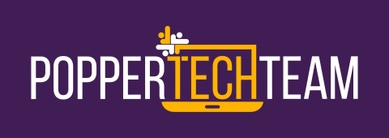In today’s rapidly evolving digital landscape, maintaining robust cybersecurity is more crucial than ever. Cybersecurity insurance policies have also adapted to these changes, now requiring specific security measures to ensure coverage. This article outlines best practice security recommendations and explains key terms that are essential for meeting the latest cybersecurity insurance requirements.
Definition: EDR is a set of tools and solutions that continuously monitor end-user devices to detect and respond to cyber threats such as malware and ransomware.
Importance: EDR solutions provide real-time visibility into potential threats, enabling swift action to mitigate risks. By monitoring and analyzing activity on endpoints, EDR helps in identifying suspicious behavior, preventing attacks before they can cause significant damage.
Definition: MFA is a security system that requires more than one method of authentication from independent categories of credentials to verify the user’s identity for a login or other transaction.
Importance: Implementing MFA significantly reduces the risk of unauthorized access. Even if one authentication method (like a password) is compromised, the additional layers of security (such as a verification code sent to a mobile device) help prevent unauthorized access to sensitive information.
Definition: Phishing training educates employees on how to recognize and respond to phishing attempts, which are fraudulent attempts to obtain sensitive information by disguising as trustworthy entities in electronic communications.
Importance: Phishing attacks are one of the most common cyber threats. By training employees to recognize phishing emails and links, businesses can reduce the likelihood of successful attacks. Ongoing education helps employees stay vigilant against evolving phishing tactics.
Definition: Immutable backup refers to data backups that cannot be altered, deleted, or overwritten. Once data is written to an immutable storage, it remains unchanged for the duration of its retention period.
Importance: Immutable backups provide a secure, unchangeable copy of critical data, which is essential in recovering from ransomware attacks. This ensures that businesses have reliable, untampered backups to restore their systems to a pre-attack state.
Definition: Network scanning involves the use of tools to identify and evaluate various elements within a network, such as open ports, connected devices, and vulnerabilities.
Importance: Regular network scanning helps in identifying potential security weaknesses and vulnerabilities that could be exploited by attackers. By proactively finding and addressing these issues, businesses can strengthen their security posture and prevent breaches.
Cybersecurity insurance providers now mandate these security measures as part of their coverage criteria. Ensuring your organization implements these best practices not only enhances your security but also helps in meeting the stringent requirements set by insurance policies.
1. Endpoint Detection and Response (EDR)
2. Multi-Factor Authentication (MFA)
3. Phishing Training
4. Immutable Backup
5. Network Scanning
Meeting Cybersecurity Insurance Requirements
- EDR ensures continuous monitoring and rapid response to threats on endpoints.
- MFA adds an extra layer of security to user authentication processes.
- Phishing Training empowers employees to identify and thwart phishing attempts.
- Immutable Backups safeguard critical data from being altered or deleted.
- Network Scanning proactively identifies and addresses vulnerabilities.
